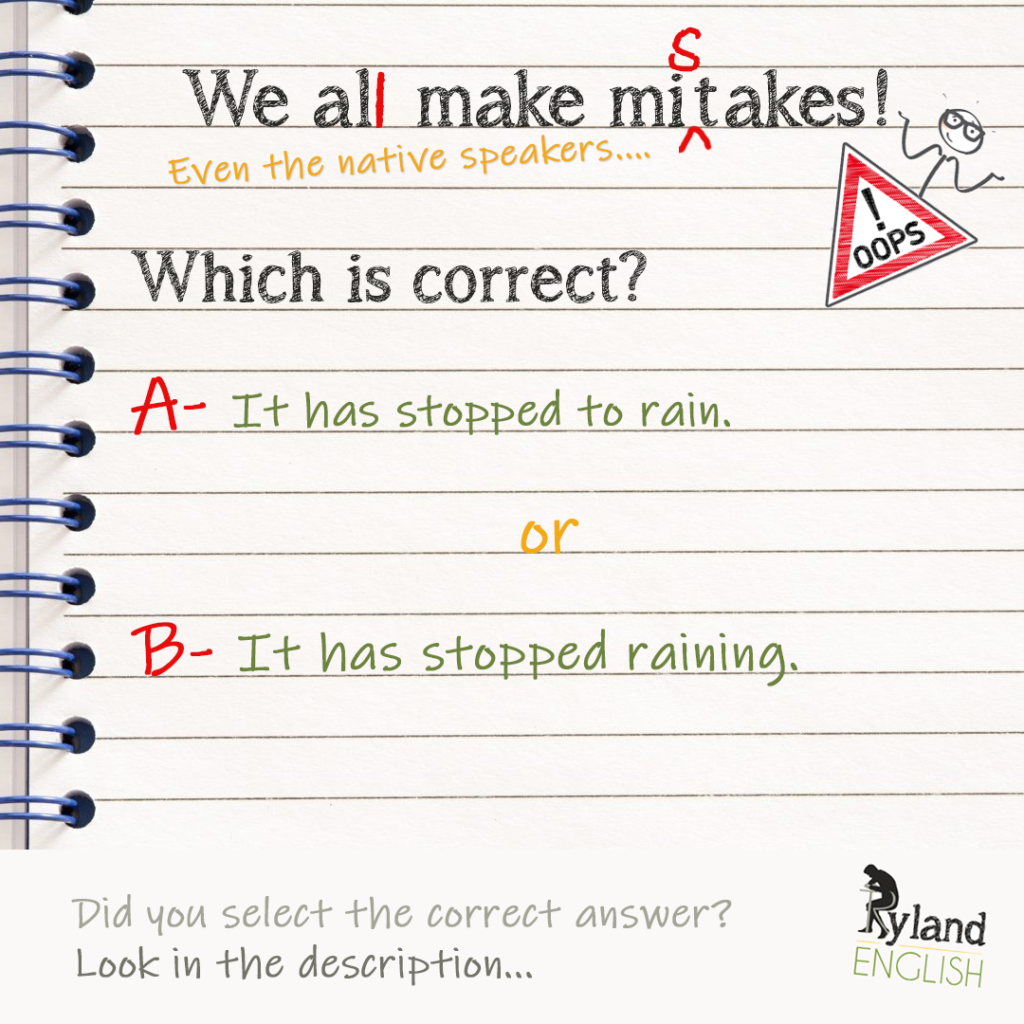
In English mistakes are often made by using the infinitive when other forms of the verb should be used. This is one example…
We use the gerund (V-ING) after certain verbs. ‘Stop’ is one of those verbs. These are some other examples.
You can’t avoid making mistakes.
Have you finished speaking?
Would you mind opening the door?
We use stop +V1-ing to indicate that an action or event is no longer continuing.
We’ve stopped using plastic bags in supermarkets.
We use stop + to + V1 to indicate that someone stops doing something in order to do something else.
On the way to Edinburgh, we stopped to look at an old castle. (We were travelling, then we stopped our journey in order to look at the castle.)
Let’s look at the rules for using the gerund (verb ending in ‘ing’) instead of the infinitive (to + verb)
- After prepositions. – He worked without stopping.
- After words which regularly take a preposition, such as fond of, insist on, tired of, succeed in. – He succeeded in catching the rat.
- After certain verbs, such as avoid, enjoy, finish, stop, risk, excuse. – They enjoy playing football.
- After the adjectives busy and worth. – Lena was busy writing a book. This date is worth remembering.
- After certain phrases, such as it’s no use, it’s no good, I can’t help, would you mind, look forward to – I think it’s no use trying again. I can’t help feeling angry about it.
- DANGER!!! You can use both the gerund or the infinitive after certain verbs, such as begin, like, dislike, hate, love, prefer. – He began to talk or He began talking.
Now what you were looking for….
The correct answer was… B
